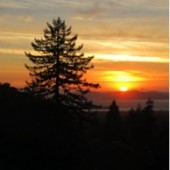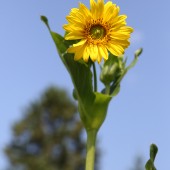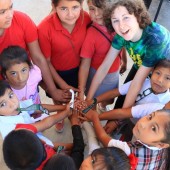
Mason JSE May 2017nFuture Casting Issue PDF The human condition can almost be summed up in the observation that, whereas all experiences are of the past, all decisions are about the future…. The image of the future, therefore, is the key to all choice-oriented behavior. The general character and quality of the images […]
Continue Reading
Kelly JSE March 2017 Future Casting Issue This time of year I am always itching to break ground on a new vegetable garden—one that will overflow with juicy strawberries and blueberries; bright green spinach, kale, and broccoli; plump peas, pumpkin and potatoes; all varieties of peppers, onions, tomatoes, beans and squash to please any palate; […]
Continue Reading
Imagine a world where people hold the highest standards for collaboration, understanding, and mutual respect. Imagine a world where people are engaged and hold a deep commitment to creating genuine, just, and mutually-empowering beneficial relationships. Imagine a world where people have the ability to connect across cultures, appreciate, and deeply listen to different perspectives, understand complex systems – and how we all fit into them – and together co-create solutions to the most daunting of global challenges. Imagine a community of people bringing forward energy and a sense of possibility, and stepping up to create the world we want to live in.
Continue Reading
Abstract: Latest results in Education for Sustainable Development (ESD) research and practice show a tendency towards more holistic approaches aiming at deep transformation of the self and the meanings of human existence. Aligned with this, we present the Transdisciplinary Framework of Worldviews and Behaviours (TFWB) to describe the possible formation and expression of a worldview, a complex constellation of meaning and identity from which all human conduct emerges. Four key principles arising from the TFWB are: 1) The whole embodied nervous system is greater than the sum of its separated parts, especially when it comes to intelligence (information processing) and learning (meaning making); 2) The mind is a highly emotion-dependent and mostly unconscious entity; 3) A worldview is a unique arrangement of meaning each person builds, and lives through; and 4) Increasing self-awareness about how a personal worldview is formed and expressed generates increasing opportunities for that individual to explore and build a different meaning for their experience, or to explore and choose different forms to express it (behave). The TFWB informs a new perspective on learning that could be useful for the achievement of ESD’s transformative goals, guiding the innovative design of educational initiatives encouraging new conceptualizations about the meanings of being human; thus, facilitating potential behavioural transformations toward a more sustainable existence.
Continue ReadingAbstract: Sustainability has the potential to provide a holistic framework that can bridge the gap that is often found between socio-economic justice and environmental discourses. However, sustainability and sustainability education have typically accepted the prevailing socio-economic and cultural paradigm. It is my aim in this paper to demonstrate that a truly holistic and visionary sustainability (education) framework ought to demand radical and critical theories and solutions- based approaches to politicize and interrogate the premises, assumptions, and biases linked to the dominant notion of sustainability. If we are to envision and construe actual sustainable futures, we must first understand what brought us here, where the roots of the problems lie, and how the sustainability discourse and framework tackle—or fail to tackle—them. To do this is to politicize sustainability, to build a critical perspective of and about sustainability. It is an act of conscientização (or conscientization), to borrow Paulo Freire’s seminal term, of cultivating critical consciousness and conscience. In lieu of the standard articulation of politics as centralized state administration, ‘critical sustainability studies’ is based on a framing that gives prominence to a more organic, decentralized engagement of conscientious subjects in the creation of just, regenerative eco-social relations. It illuminates the ideological and material links between society, culture, and ecology by devoting particular attention to how knowledge and discourse around and across those realms are generated and articulated. I believe that future scholarship and activism in sustainability and sustainability- related fields would benefit immensely from dialoguing with this framework.
Continue Reading